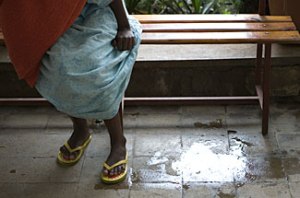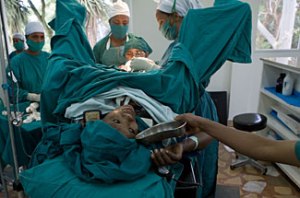By the time you go to bed tonight, more than 800 women will have died from pregnancy or childbirth-related complications around the world, the vast majority of these being African women. For every one of these women that dies 20 more will be injured or disabled, with the most common injury being obstetric fistula.
As an African woman I must admit to being a little disturbed at having only become aware of this epidemic in the last couple of years. Why has it been so neglected despite the devastating impact it has on the lives of affected girls and women?
This article is a graphic read but we don’t apologise for it. It’s time we brought the more than 2 million African girls and women living with obstetric fistula out of the shadows.
What exactly is obstetric fistula?
It’s an injury that usually occurs when a woman is in prolonged labour without access to timely medical intervention. Over the course of three to five days of labor, the unborn baby presses against the mother’s pelvic bone, cutting off blood flow to the surrounding tissues and causing the tissues to disintegrate and rot away. A hole – or fistula – develops either between the vagina and the bladder or the vagina and rectum causing an uncontrollable constant leaking of urine, faeces and blood.
That’s the scientific explanation!
The reality on the ground is that in most cases the baby is stillborn or dies within the first week of birth and the women are left facing lifelong incontinence that will lead to their being shunned by their communities, abandoned by their husbands and families and completely isolated socially and economically. In some communities these girls and women are physically moved to the edges of their villages and towns, often to live in isolation where they die from starvation or an infection in the birth canal. The unavoidable odor is viewed as offensive, thus their removal from society is seen as essential.
The acid in the urine, faeces, and blood often causes severe burn wounds on the legs from the continuous dripping, resulting in nerve damage that can cause the women to struggle with walking and eventually lose mobility. In an attempt to avoid the dripping, many women limit their intake of water and liquid which can ultimately lead to dangerous cases of dehydration. Ulceration and infections can persist as well as other medical complications which can lead to death. Because only a quarter of women who suffer a fistula in their first birth are able to have a living baby, affected woman have little chance of conceiving a healthy baby later on.
Who’s likely to get it?
Whilst all women of reproductive age are vulnerable to suffer fistula, it’s more prevalent in communites where child marriages and early childbirth occur since young mothers generally have under-developed pelvises. In fact, obstructed labor is responsible for 76% to 97% of obstetric fistulas.
A woman living in a culture where she has little ownership of her body and her status and self-esteem depend almost entirely on her marriage and ability to bear children is also at higher risk. Other risk factors include lack of access to contraceptives resulting in pregnancies that are too closely spaced and lack of access to quality maternal health care and emergency obstetric care such as caesarean sections.
Can it be treated?
Patients with uncomplicated fistulae can undergo a simple surgery to repair the hole in their bladder or rectum. The treatment cures up to 90% of obstetric fistula patients. However, many women remain unaware of the availability of treatment for their condition or the shame associated with the condition prevents them from seeking help. It’s estimated that 80% of women with fistulas never seek treatment. The medical costs of repair, between $150 and $450 US dollars, as well as significant transportation issues also prevent many women from receiving care. There are very few African hospitals with the resources and trained staff to perform fistula repair, and women frequently must travel far to reach treatment facilities.
What can I do?
Every one of us is in a position of influence within our communities. Do your research, find out more about obstetric fistula and other conditions affecting African women, and their causes. Share your knowledge. We’re often in a position to influence a decision on early marriage or share knowledge on contraceptives or health care within our extended circle of family and friends.
Remember, even if you impact the life of one woman, you’ve played your part in keeping the chain of change moving. But by the grace of God, these two million African women living with fistula injuries could be you or I!





Comments